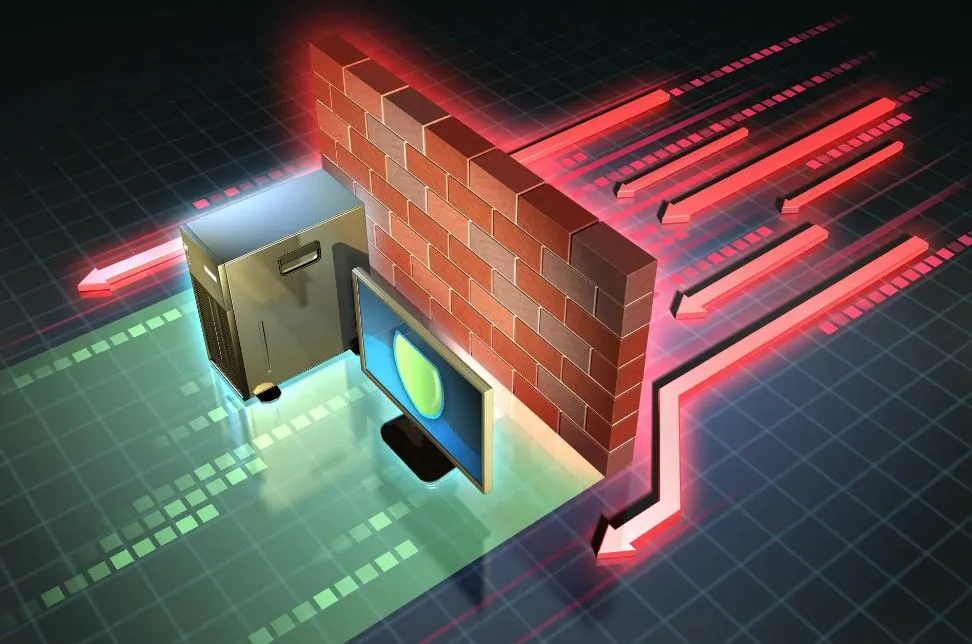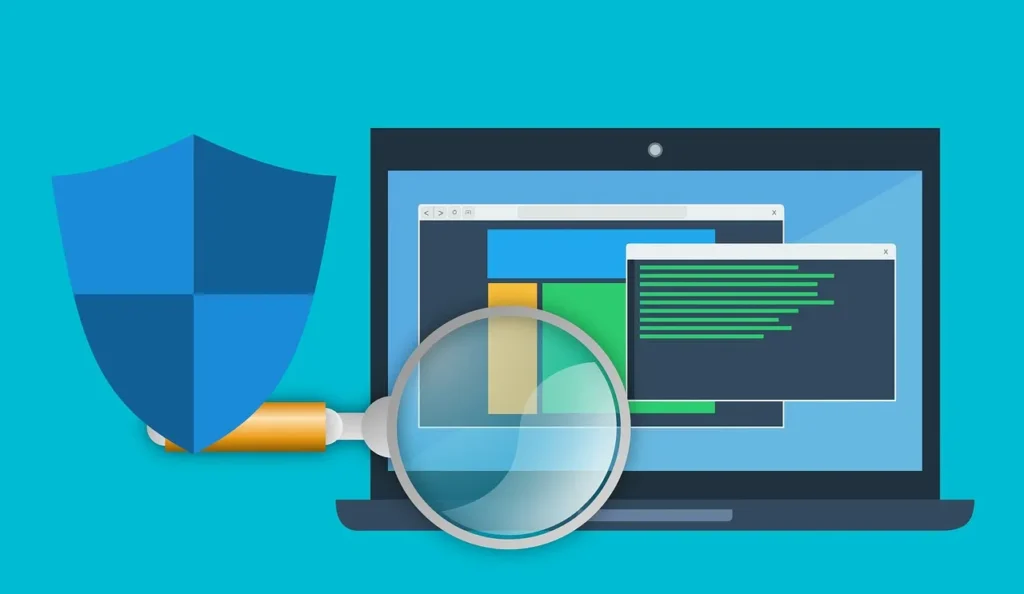What is Firewall : Definition, Types, and Functions
Despite experiencing rapid development, computer network technology still has problems with data security. So that brings up an effective solution in the form of the use of a Firewall. So what is firewall actually?
Some people may have heard of the term Firewall. Especially users of computer devices with the Windows operating system. In these operating systems, Firewall is often represented by an icon in the form of a red brick wall.
In this article, we will review the definition of Firewall, its types, and also its function. The goal is to further introduce the Firewall and its details to all readers. Especially for those who are interested in the world of network technology and computer servers.
Table of Contents
- What is Firewall?
- 4 Common Types of Firewalls
- Firewall Functions on Computer Networks
- How Firewalls Work
- Conclusion
What is Firewall?

Firewall is a computer network security system that is useful for protecting against viruses, malware, spam, and other types of attacks. Firewall can also be interpreted as software to prevent access that is considered illegal or unauthorized from a private network (private network).
Therefore, the main task of the firewall itself is to monitor and control all incoming or outgoing access to network connections based on predetermined security rules.
In addition, it also has a role to maintain the security of the internet network connected to various user devices. So that internet users can access information and data more securely.
Although the Firewall has a very important role, there are still many users who ignore the use of the software. This results in security when browsing on the internet has become quite vulnerable.
In addition to the question of what is Firewall, many may also ask about the importance of using the software. Especially by computer users whose devices have never experienced a virus or malware attack.
When there is an illegal connection or suspicious traffic enters your computer network device, then the problem will be more complicated and complicated. So that it can interfere with the performance and security of the data on the device.
Read: 8 Types of Network Devices You Should Know
Therefore, it is important to activate the initial protection in the form of a Firewall on the computer device. Especially if the device is often used to transfer data from the internet or other servers.
Firewalls can be used as an anticipatory measure to prevent possible malware or virus attacks. So that the potential for dangerous conditions can be minimized.
The next reason why it is necessary to use a Firewall is to protect against the practice of data theft, misuse of information, or leakage of company secrets. So that data security or user privacy can still be maintained optimally.
4 Common Types of Firewalls

After knowing about what is Firewall, now we will discuss about the types of Firewalls. In general, there are 4 types of firewalls that are commonly used in computer network technology.
Circuit Level Gateway Firewall
Circuit Level Gateway is one type of Firewall which is quite commonly used in network topology technology. This type of firewall has the main function to provide verification on TCP (Transmission Control Protocol).
TCP in short is a soft network that functions as a medium for transmitting data communication and is connected to the internet. In order for a computer to be able to connect to the internet, it will require software called TCP.
Read: What is Network Topology?
Circuit Level Gateway only performs the screening process on data that has TCP handshake compatibility. This process is carried out without seeing the possibility of the presence of a virus in the process so that it can escape and enter the computer system.
This makes the use of a Circuit Level Gateway type of Firewall less suitable for computer devices connected to the internet. Because the viruses and malware can escape the screening process carried out by the Firewall.
Proxy Firewall
The next type of firewall is a proxy firewall. Proxy Firewall works in the realm of cloud systems so it offers extra security in its protection on the device. In addition, this Firewall is also stricter in sorting and distributing data from one source to another.
A proxy firewall works at a specific layer in an application as well as across the network traffic sources and connections you use. Firewalls that work at this particular layer will ensure that the virus and malware filtering process can be carried out more optimally.
Read: What is a Proxy Server: Definition, Types, and Benefits
In general, proxy firewalls have a very good level of security. This is because the distributed data packets will go through a series of layered checks. The filtering process ensures that no virus is carried and has the potential to escape the screening process.
After ensuring that there are no viruses or malware carried in the screening process, the Proxy Firewall will give permission so that data can be accessed to the next stage. So that when it comes to the user’s device the accessed data is completely safe.
Firewall Software
Firewall software not only regulates the data distribution system, but also protects the computer system like an antivirus. But what distinguishes between antivirus and firewall software is its function in dealing with viruses on computer devices.
Antivirus functions to find and clean viruses that have already entered the computer device. While the Software Firewall serves to block viruses when they enter the system.
In addition, this type of firewall also serves to help stabilize the network so that it is not disturbed. So that the data transfer process can be carried out more securely and also runs at an effective data transfer speed.
Stateful Inspection Firewall
The last type of firewall is the Stateful Inspection Firewall. The firewall device works at the transport and internet application layers. This firewall has a fairly high level of security when compared to other types of firewalls.
The main function of this firewall is to check the packet source and open the contents of the packet. Unfortunately, the process of opening the package can reduce system performance. So that it can affect the performance of the system.
So if you use this system, it can automatically increase the level of security, but can reduce the performance of your computer. However, for maximum data security, device performance decline is not something to be afraid of.
Firewall Functions on Computer Networks

As already stated in the discussion about what is a firewall, a firewall is a system that limits computers from the internet network. So that the computer device will remain safe because not just any data can enter the device.
Is the function of the Firewall only limited to that? The answer is no. For your information, here are some other functions that the Firewall has.
Malicious Content Prevention
One of the important functions offered by the Firewall is in the prevention of harmful content. Actually the definition of harmful content is quite subjective. Because it can depend on the assessment of each individual.
But generally, harmful content is judged by how much impact it will produce when the content is displayed. For example, the government wants to restrict access to certain sites.
Read: Fiber Optic Cable Types – A Complete Guide
Firewalls provide convenience in the process of blocking certain content or information on the internet. Using a Firewall, you don’t need to block one by one these sites manually from your computer.
In general, Firewalls have an automatic working system that will detect prohibited information and by default stop the data access process. So that the process of blocking these sites can be done en masse in a relatively short time.
Monitoring on Bandwidth Usage
Another technical function possessed by the Firewall is as a regulator and supervisor on bandwidth usage. In short, bandwidth is a communication path that functions as a data channel from the server point to the client.
The amount of bandwidth capacity affects the speed of information transmitted in bits per second (bps). Firewalls can adjust the bandwidth in the distribution of information. So that it can be filtered in advance whether it is safe or not to be distributed through computer systems.
Transport and Internet Application Layer Provider
Transport and Internet Application Layer providers are an important part of a computer network. This device serves to perform splitting, unification, arrangement of flow and connection types to distribution of connections so that they can be accessed easily and organized.
In this section, the Firewall functions to regulate the connection process at the transport application layer, so that the data you want to access is safer without worrying about damaging the computer system due to viruses.
Providing VPN Facility Access
Virtual Private Network (VPN) is one way that is commonly used to secure data while on the internet. VPN allows users to access information privately (privately) by utilizing other networks but remains safe and kept confidential.
Usually, the use of a VPN is used when you want to access websites abroad and is restricted when accessed within the country. So you can still access this information from within the country safely.
During the process of using a VPN, the firewall plays an important role as a provider of facilities to the system, so that it can be accessed with a higher level of security. So that the security of privacy data will be more optimally maintained.
How Firewalls Work

In general, the way Firewalls work in securing computer networks is divided into three stages of different methods. These methods can be run individually or in combination with each other to secure network connections.
For information, here are 3 general stages of how a Firewall works that you need to know:
Data Filtering
The first Firewall working method is to filter data. The data will be accessed first through a filtering process before being forwarded to the user. Later, the Firewall will perform the selection and sorting of data in detail.
The sorting process aims to detect which information can and is safe to be distributed or should be discarded. Therefore, if the data is in accordance with the criteria required by the system, the Firewall will pass the data so that it can be accessed to the next stage.
Proxy Service
The next approach to the Firewall working method is the Proxy Service. The way a firewall works using a proxy service is to retrieve data on the internet and then it will be sent to the requested system or vice versa.
So that there will be an ongoing process in accordance with the proxy service that is applied. The firewall will immediately retrieve data on the internet, then directed to the system that has requested the data.
Carrying out a Stateful Inspection Process
This last Firewall working method is fairly new. The system will compare certain key parts of the packet with a trusted database of information. Then the information from the firewall will determine the specifics related to the characteristics that will produce a reasonable match.
The inspection method allows the system to process data that is deemed safe for distribution. The purpose of adjusting the characteristics of the data is to see whether the data is in accordance with the qualifications applied by the system.
Conclusion
So a firewall is a security system on a computer network that is useful for protecting computers from attacks by irresponsible parties, viruses, malware, and others that can harm computer devices.
The use of a firewall can be an additional security system on the network so that the data transfer process can take place more optimally. There are several types of Firewalls that can be selected according to the specifications and needs of the computer network.
Thus our discussion of what is Firewall. We have already conveyed the definition, function, type, and also how a Firewall works. Hopefully this article can add to your insight and knowledge about the world of network technology.
